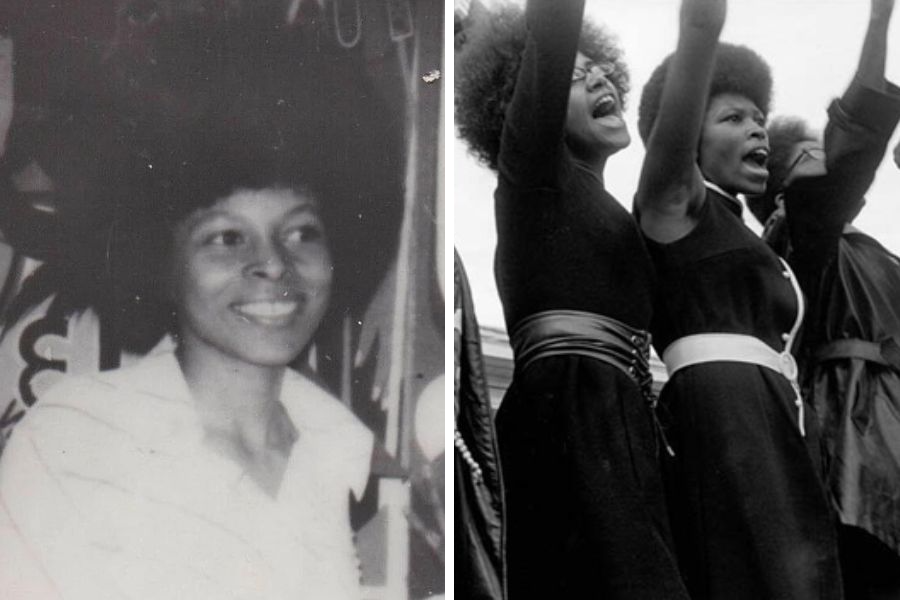The passing of Assata Shakur in Cuba has reignited global conversations about activism, resistance, and the lasting impact of one of the most controversial figures of the 20th century.
Assata Shakur, a figure whose life has been at the heart of political discussions and cultural stories, has passed away in Cuba, where she had been residing in exile for many years. Recognized as rapper Tupac Shakur’s godmother, she was also a symbol representing the blend of activism, revolution, and dispute. Her passing signifies the closure of a historical era that spanned across countries, generations, and political movements.
Born JoAnne Chesimard in Queens, New York, she became a notable figure within the Black Panther Party and subsequently joined the Black Liberation Army during the 1960s and 1970s, a time marked by significant social and political upheaval in the United States. Her participation in these groups made her a symbol of defiance for some, while others saw her as a fugitive. She was eventually found guilty in relation to the death of a New Jersey state trooper in 1973, a case that attracted widespread attention and sharply divided public opinion. In 1979, she escaped incarceration and sought refuge in Cuba, where she was granted asylum by the government, remaining there until her passing.
A lifetime characterized by activism and debate
Shakur’s life was deeply intertwined with the struggles for racial equality and justice in America. As a young woman, she was drawn to the Black Panther Party’s message of empowerment and community protection. She dedicated her efforts to fighting systemic oppression, working in community programs that sought to address poverty, healthcare, and education in underserved areas.
Nonetheless, her advocacy soon clashed with the U.S. legal system. Shakur was linked to multiple violent acts connected to the Black Liberation Army, resulting in her detainment and sentencing. To her advocates, she was seen as a casualty of political oppression, pursued by government bodies intent on dismantling Black liberation efforts. To her detractors, she was viewed as a threatening militant using violence to push her agenda. This divided perspective persisted throughout her life, ensuring that she continued to be a contentious figure long after her departure from the United States.
Her audacious breakout from jail in 1979 enhanced her notoriety. With the help of accomplices, she succeeded in escaping a high-security prison and eventually reached Cuba. In her new location, she established a life in exile, sheltered by the Cuban government and respected by supporters globally. Her stay in Cuba escalated the strain between the U.S. and Cuban governments, as Washington persistently requested her return, but Havana continually resisted.
Cultural influence and connection to Tupac Shakur
Assata Shakur’s legacy extends beyond politics and activism, permeating culture and art. She became a muse and symbol for artists, writers, and musicians who saw in her story a reflection of struggle and defiance. Her autobiography, published in the 1980s, offered a personal account of her experiences and became a cornerstone for those studying the history of the Black liberation movement.
Her connection to hip-hop was cemented through her relationship with her godson, Tupac Shakur. The rapper often referenced themes of resistance, injustice, and survival in his music, themes that paralleled Assata’s life. To many in the hip-hop community, her existence represented a living link between the revolutionary spirit of the 1960s and 1970s and the cultural battles of the 1990s and beyond.
The resonance of her life story was not limited to the United States. Across the world, activists and thinkers looked to her as an example of resilience in the face of state power. Her name appeared in protest chants, songs, and speeches, becoming part of a global vocabulary of resistance.
The debate over her legacy
The passing of Assata Shakur has sparked renewed conversations on her influence, highlighting the intricacies of her journey and decisions. To some, she is a symbol of defiance against institutional racism and injustice, a person who sacrificed deeply for her convictions. Others remember her as a convicted outlaw whose actions left lasting damage.
The U.S. government had long labeled her as one of the top fugitives, offering a substantial bounty for information leading to her arrest. Despite this, she lived openly in Cuba, engaging in scholarly and cultural activities, all while staying out of American legal grasp. Her circumstances highlighted the ongoing political rift between the two countries and emphasized the worldwide aspects of her narrative.
In Cuba, Shakur was frequently depicted not as an offender, but as a political refugee who had fled from persecution. Her passing there signifies the end of a remarkable exile, which served as a symbol of resistance to some and a cause of frustration to others.
A long-term influence on history
Assata Shakur’s death closes a life that was as influential as it was controversial. She lived at the crossroads of activism, art, politics, and culture, shaping conversations that continue to this day. The questions raised by her story—about justice, resistance, and the power of belief—remain unresolved, ensuring that her name will endure in debates about history and social change.
For her supporters, Shakur represented courage and defiance, a voice against oppression that refused to be silenced. For her detractors, she was a reminder of a turbulent era marked by violence and division. Regardless of perspective, her influence cannot be denied.
Her death in Cuba does not eliminate the complexities of her existence; on the contrary, it highlights them, serving as a reminder to the world that individuals such as Assata Shakur cannot be easily categorized. She simultaneously embodied the roles of an activist, a fugitive, a cultural icon, and a contentious character—elements that made her narrative captivating and her legacy lasting.
As she continues to look back on her life, one thing is certain: Assata Shakur’s legacy will endure not only due to her place in history but also because of the lasting discussions she initiated on justice, resistance, and the concept of freedom.




